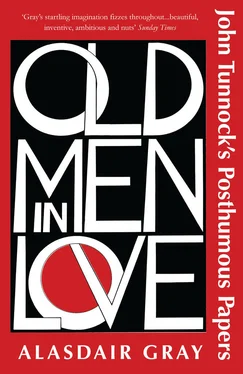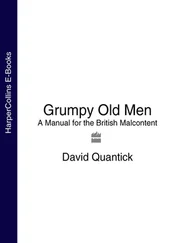Henry had hitherto hired a carriage when he needed one. Owning a one-horse carriage was then a mark of middle-class prosperity: a carriage and pair signified a much higher social standing.
“No!” cried Julia, “A carriage and four ! With outriders! Your dignity demands it, Belovéd.”
The idea astonished and excited nearly everyone present — a carriage drawn by four horses was seldom used except by royalty and lords travelling in state processions. If it occurred to the horsemen present that a carriage and four would need unusually skilful management on the twisting roads of southern England they did not say so. When, with a slight chuckle, Henry asked, “What is the sentiment of this meeting toward Sister Julia’s somewhat audacious suggestion?” they all smiled, delighted that the Spirit was allowing their Belovéd to unbend in a joke.
“Yes, you must have a carriage and four Belovéd!”, cried Starky, “It is owed to the Spirit moving you!”
“Hear hear!” cried the others so Henry, amused yet resigned, murmured, “If I must, I must.”
Julia and Mrs Starky devized sober yet eye-catching suits of livery in two shades of grey for the Belovéd’s coachman and footmen. These were cut by Samuel Tricksey, the Agapemone tailor, a small man who fancied himself as a jockey. To stop the harness tangling at sharp bends he gladly rode one of the foremost horses when Henry drove outside Weymouth. This splendid equipage astonished commoners who had seen nothing like it and annoyed gentry who thought it a vulgar display of ill-gotten wealth.
One day Henry urgently summoned George Thomas to the Weymouth Agapemone, and Thomas answered that he could not come at once as he and Agnes were going on holiday to his mother in Wales. Henry had not met such disobedience since his days as a Charlinch curate and had never before found it in Thomas, one of the earliest Lampeter Brethren and also the preacher on whom, after Starky, he most depended. Thomas was obviously now under his wife’s bad influence. When the sinful couple came to Belfield Terrace on the way back from Wales they were put on trial before Henry and Julia, Sam and Mrs Starky. The main accusers were Agnes’ sisters and their husbands. Thomas had never been rebuked by Henry before. He wept, knelt on the floor, confessed his sin and begged forgiveness. Agnes stared at him in astonishment tinged with contempt that struck the rest as open defiance. Thomas leapt to his feet and cried out in as terrible a voice as he could manage, “Agnes! I command you to obey henceforth the Spirit of God in me, made known to me through our Belovéd servant of the Lord!”
Agnes crept to her bedroom in a house that felt more like a Spanish inquisitor’s jail than an abode of love.
Worse followed. Harriet, Agnes and Clara had a younger sister Louisa, a woman of forty who still lived with their widowed mother and was also heiress to a big slice of their father’s fortune. In the next few days Agnes realized Louisa was being invited to join the Agapemone too, so began writing a letter advizing her not to come. In a commune privacy is almost impossible. Thomas found the letter and showed it to Henry. When Agnes went to her bedroom that night her husband stood in the doorway and said, “You are lost, Agnes. From now on any room where I am is locked against you, is an empty room as far as you are concerned. Go and beg for a sleeping space from one of the female servants in the basement or attic. You will not find her so easy to corrupt as you have corrupted me once, but never again! I have repented and have been forgiven. You have twice defied the Servant of the Lord and now can never be forgiven.”
Next day Agnes was left in Belfield Terrace with two servants when Henry, Thomas and other chief Princeites went by carriage to Spaxton, where a row of cottages had been made habitable for them. A week after that a letter from a servant at Weymouth told Henry that Agnes was certainly pregnant. Thomas wrote to her at once, commanding her to go and live with his mother in Wales. Instead she returned to her own mother’s house near Stoke where she gave birth to a son a few months later.
Louisa Nottidge, despite the sufferings of her sister Agnes, despite the opposition of her mother and other relatives, came to live in one of Henry’s completed cottages at Spaxton. One evening a carriage arrived containing her brother, a clergyman-cousin and a stranger who turned out to be a police officer. They said they had come to take her home because her mother was ill. She refused to believe them so was forced into the carriage, fighting and screaming, and driven to a private hospital near London where she was locked up as a madwoman. Harriet, Clara and their husbands could get no news of Louisa’s whereabouts from her mother. After eighteen months Louisa managed to send word of the madhouse address to William Cobbe, her brother-in-law. Cobbe applied to the Commissioners of Lunacy who investigated, found imprisonment was damaging Louisa’s health, that she had religious delusions but was otherwise sane. When freed she legally transferred all her property to Henry and returned to the Abode.
The Spaxton Agapemone was then complete and the one in Weymouth abandoned. There is no record of how Henry finally entered the great new Abode but surely he did it splendidly, going with Julia and the two Starkys in the carriage and four down long lanes through woodlands, two liveried footmen seated behind, and in front beside the coachman on the box, a postillion blowing a long horn to herald the Belovéd’s approach. I imagine as outriders beside the carriage all the Agapemone male gentry — three clergymen, two Maybers, William Cobbe and the attorney Rouse. A groom rides one of the foremost horses because the tailor — Samuel Tricksey — is now the Agapemone gateman. At the sound of the horn he appears from his gatehouse, above which is a tower with flagpole and flag bearing the Agapemone emblem: a lamb, lion and dove on a bed of roses with the motto Oh, Hail, Holy Love . From now on this flag will be flown whenever Henry is at home. As Tricksey and a servant open the gates for the carriage please imagine the Old Hundredth struck up by a mighty cathedral choir and organ: –
O enter in his gates with praise;
Approach with joy His courts unto;
Praise, laud, and bless His Name always,
For it is seemly so to do.
For why? the Lord our God is good;
His mercy is for ever sure;
His truth at all times firmly stood,
And shall from age to age endure — as carriage
and outriders canter up a drive to a front door where all the servants are ranged on each side of the front steps, with the ladies of leisure at the top. Henry and companions leave the carriage; his entourage dismounts. Grooms lead carriage and horses away to the stables as Henry leads everyone else into the house with a radiant smile that seems to shine on all while focusing on none.
Maybe an hour or two later we see him in the Agapemone church. It has no altar, lectern, pulpit or choir stalls. The only religious symbols are the lamb, lion, dove and roses in the stained glass windows. The interior is furnished like an opulent Victorian drawing room with a large red ottoman sofa in the chancel where the communion table normally stands. On this Henry comfortably sits, right leg cast over left knee, and addresses the gentlefolk standing before him.
“Dear Brothers and Sisters in Christ,” he says sweetly, “today we have entered Jerusalem with psalms of praise and now the Day of Judgement is past. The Angel has left the Mercy Seat, and we, the Blesséd, are gathered into the bosom of God. From now onwards psalms, prayers, sermons and services are at an end, and we will live for ever surrounded by all that can delight the eye and satisfy the sense. Only one ceremony remains — that great manifestation of the Holy Spirit’s love for the Body by which he redeems it from sin and death. And just as Satan started the fall of the old earth in Adam’s flesh — that is, in Eve, who was living earth — so will God restore the earth by creating a new consciousness in the flesh of a woman once again. It behoves the virgins among you, therefore, to adorn yourself and await the coming of the bridegroom. The hour is nigh!”
Читать дальше












